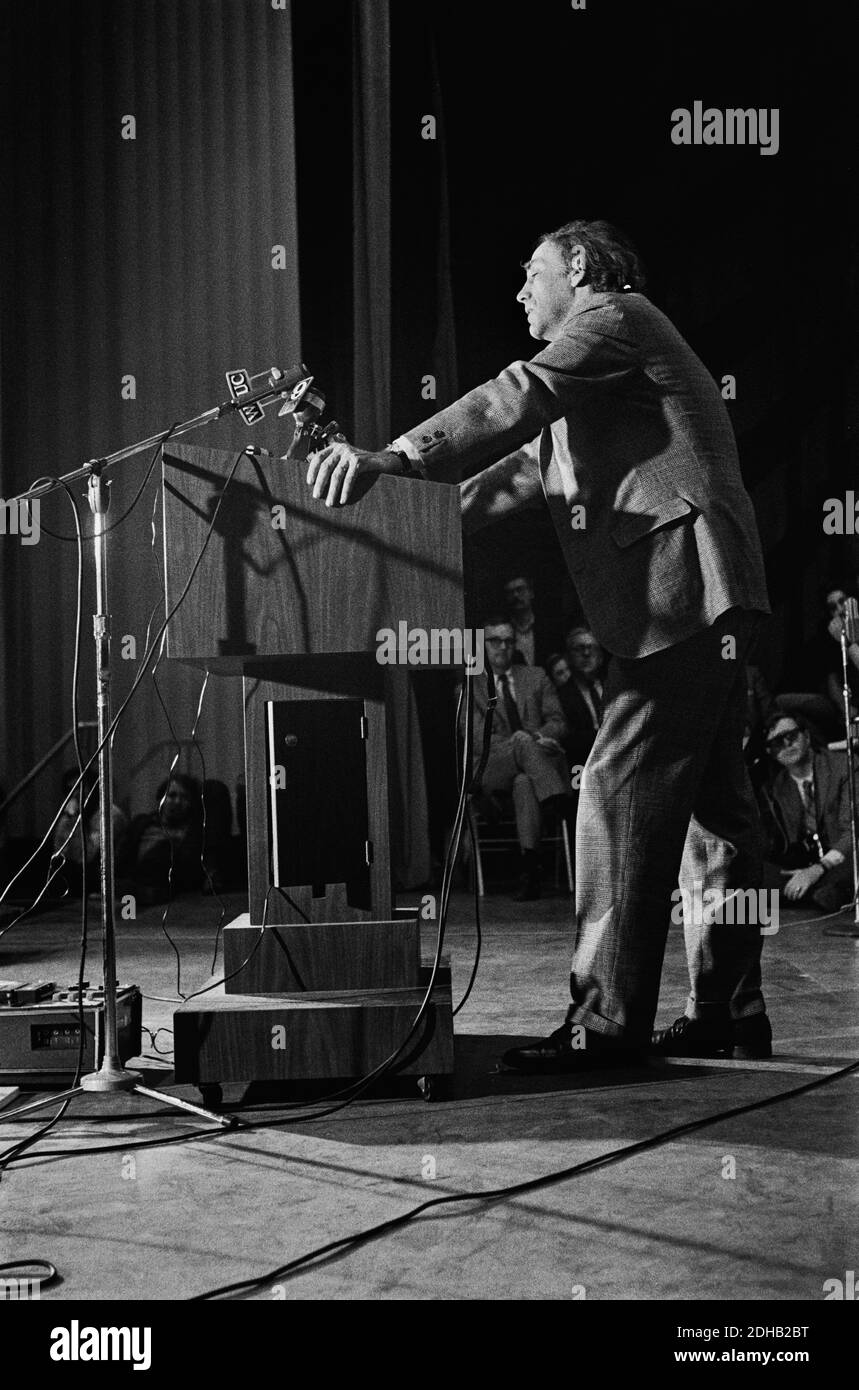Attorney William Kunstler speaks at the University of Cincinnati in 1969. William Moses Kunstler was an American lawyer and civil rights activist, known for defending the Chicago 7. Kunstler was an active member of the National Lawyers Guild, a board member of the American Civil Liberties Union (ACLU) and the co-founder of the Law Center for Constitutional Rights, the "leading gathering place for radical lawyers in the country." Kunstler's defense of the Chicago Seven from 1969 to 1970 led The New York Times to label him "the country's most controversial and, perhaps, its best-known lawyer".

Image details
Contributor:
Ken Hawkins / Alamy Stock PhotoImage ID:
2DHB2BTFile size:
95.8 MB (4.5 MB Compressed download)Releases:
Model - no | Property - noDo I need a release?Dimensions:
4706 x 7116 px | 39.8 x 60.2 cm | 15.7 x 23.7 inches | 300dpiDate taken:
1969Location:
University of Cincinnati, Cincinnati, OhioMore information:
This image could have imperfections as it’s either historical or reportage.
unstler first made headlines in 1957 when he defended William Worthy, a correspondent for the Baltimore Afro-American, who was one of forty-two Americans who had their passports seized after violating the State Department's travel ban on Communist China (after attending a Communist youth conference in Moscow).[9] Kunstler refused a State Department compromise which would have returned Worthy's passport if he agreed to cease visiting Communist countries, a condition Worthy considered unconstitutional.[10] Kunstler played an important role as a civil rights lawyer in the 1960s, traveling to many of the segregated battlegrounds to work to free those who had been jailed. Working on behalf of the ACLU, Kunstler defended the Freedom Riders in Mississippi in 1961.[11] Kunstler filed for a writ of habeas corpus with Sidney Mize, a federal judge in Biloxi, and appealed to the Fifth Circuit; he also filed similar pleas in state courts.[11] Judge Leon Hendrick in Hinds County refused Kunstler's motion to cancel the mass appearance (involving hundreds of miles of travel) of all 187 convicted riders.[12] The riders were convicted in a bench trial in Jackson and appealed to a county jury trial, where Kunstler argued that the county systematically discriminated against African-American jurors.[13] In 1962, Kunstler took part in efforts to integrate public parks and libraries in Albany, Georgia. Later that year, he published The Case for Courage (modeled on President Kennedy's Profiles in Courage) highlighting the efforts of other lawyers who risked their careers for controversial clients as well as similar acts by public servants. At the time of the publication, Kunstler was already well known for his work with the Freedom Riders, his book on the Caryl Chessman case, and his radio coverage of trials. Kunstler also joined a group of lawyers criticizing the application of Alabama's civil libel laws and spoke at a rally against HUAC.